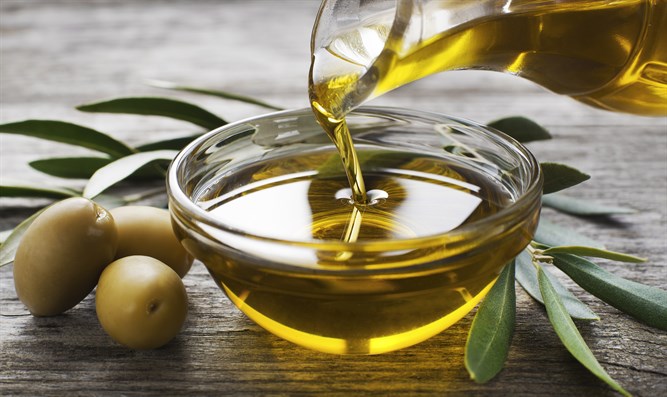Ancient doc Hippocrates prescribed Extra-Virgin Olive (EVOO) for around 60 health conditions. In fact, he called it ‘the great healer.’ The evidence is showing he might have been on to something – and we love EVOO so much we decided to dedicate a whole article to it!
EVOO is credited as one of the main health promoting components of the Mediterranean diet. This dietary pattern is centred around fruit and vegetables, nuts and seeds, wholegrains, legumes, fish and lean proteins with small amounts of red wine, red meat and dairy. Mediterranean populations experience reduced incidence of many chronic degenerative diseases; including alzheimer’s, arthritis, cardiovascular disease and cancers, and enjoy a longer life expectancy.
A growing number of studies are showing us that the healthy fats and bioactive phenolic compounds (= disease-fighting hero’s) in EVOO have beneficial effects on inflammation, antioxidant status, have anti-microbial activity and impact other markers of disease.
What’s in it?
Olive oil is mostly made up of the monounsaturated fatty acid oleic acid (> 80%). We know that monounsaturated fats are associated with reduced inflammation and risk of heart disease – especially when replacing saturated fats in the diet.
There’s also more than 30 phenolic compounds in EVOO, with the major phenolic compounds in EVOO being oleuropein, hydroxytyrosol and tyrosol – all of which are powerful antioxidants and display anti-inflammatory properties. Antioxidants help to protect the body from day-to-day damage that occurs naturally as a by-product of normal body processes.
What are the health benefits?
Much of the health benefits associated with EVOO are attributed to the natural phenolic compounds. The actions of these polyphenols are numerous, though significantly related to their potent ‘antioxidant’ effect. As mentioned above, these phenolics decrease the level of reactive oxygen species (that are naturally created when your body uses oxygen), thus protecting the body against oxidative damage. They also affect the immune system, impacting white blood cells and inflammatory cytokines – and may thus reduce inflammation. This may in turn influence risk of inflammatory disease.
A phenolic compound contained in EVOO and known as oleocanthal has a similar effect to the non-steroidal anti-inflammatory (NSAID) drug ibuprofen, so much so that it is now recognised as a naturally occurring NSAID. Oleocanthal has been shown (majorly in test-tube and animal studies) to reduce inflammatory related disease, including joint diseases (e.g. arthritis), neurodegenerative diseases and specific cancers.
Furthermore, EVOO might help you to feel full after meal, thus aiding in weight control. Additionally, the fats in EVOO help you to absorb fat soluble vitamins (like Vitamin K contained in leafy greens). And finally – it tastes good!
Why extra-virgin?
The quantity and quality of the phenolic compounds is related to the processing of the oil.
EVOO is extracted (cold pressed or squeezed) from olives without heat or chemicals. This allows antioxidants, plant sterols and other healthy compounds to remain in the oil. Other olive oils are generally refined using high heat, pressure and/or chemicals, which can decrease the polyphenol content.
EVOO & athletes
They say in ancient Greece, athletes rubbed EVOO all over their bodies. Whilst we’re not recommending this (though we’re not against it either – go right ahead) – we are all for athletes including olive oil as part of a healthy diet.
The impact of olive oil on sport performance is still unravelling. Based on what we now, including 2-3 Tablespoons per day may help with reducing inflammation in the body, which is particularly important if recovering from injury.
In regards to impact on sports performance, things are not yet clear. Interestingly, a 2019 study by Esquius et al. supplementing with 25ml EVOO increased cardiorespiratory coordination, though did not change performance or other physiological markers. The authors explained this effect via the antioxidant effect of the phenolic compounds.
Can you cook with it?
You sure can. EVOO has a smoke point between 200-215°C, which is above the standard temp required for home cooking. The fatty acid profile and antioxidant content make it a stable cooking oil at high temperatures. Though cooking can reduce antioxidant content of EVOO, evidence suggests they are still found in the final product!
Get more EVOO on your plate:
• Drizzle a tablespoon on your salad.
• Add to chopped vegetables before baking.
• Drizzle on wholegrain toast instead of butter.
• Marinate meat/fish with EVOO, herbs and spices before cooking.
• Make a pesto with EVOO, pine nuts and parmesan.
References:
• Esquius, L et al. 2019, Physiological- and performance-related effects of acute olive oil supplementation at moderate exercise intensity, Journal of the International Society of Sports Nutrition, 16:12.
• Gorzynik-Debicka, M et al. 2018, Potential health benefits of olive oil and plant polyphenols, International Journal of Molecular Sciences, 19:3.
• Oleocanthanthal, a Phenolic Derived from Virgin Olive Oil: A review of the beneficial effects on inflammatory disease 2014, International Journal of Molecular Sciences 15:7.
• Guasch-Ferre, M et al. 2014, Olive oil intake and risk of cardiovascular disease and mortality in the PREDIMED Study, BMC Medicine, 12:78

